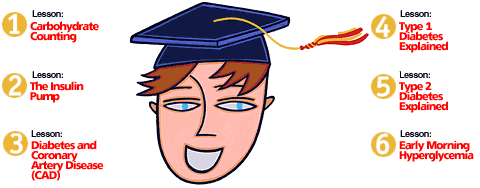
What does not cause type 2 diabetes?

What does not cause type 2 diabetes?
There are many misconceptions about causes of type 2 diabetes. The following factors do not have a direct effect on causing people to develop type 2 diabetes:
Sugar: Eating a lot of sugar in itself will not bring on diabetes. Eating too much sugar, just like eating too much protein or fat, can cause weight gain and increase your risk for developing type 2 diabetes if you are genetically at-risk for the disease.
Emotions: Emotional highs and lows will not bring about the onset of type 2 diabetes, although emotional instability can play a part on controlling the disease once you already have it.
Stress: Stress in itself doesn't cause diabetes, although excessive stress can weaken your immune system and make it harder to fight infections.
Antibodies: Unlike type 1 diabetes, type 2 diabetes isn't an autoimmune disease. So, your antibodies are not attacking your insulin-producing pancreatic cells to bring on the disease.
Gender: Type 2 diabetes occurs with equal frequency in males and females.
Assignment #2
Now that you've learned some of the myths about the cause of diabetes, check out this fascinating article that brings light to common misunderstandings about the diabetic diet.
Can type 2 diabetes be prevented?
The good news is that early warning signs of type 2 diabetes can be predicted well in advance of an actual diagnosis. Since it is strongly considered a genetic disease, a lot of useful information can be gleaned from studying the close relatives of people who have already been diagnosed. One test that may be conducted as a form of primary prevention (before disease onset) would be to test for impaired glucose tolerance. This would be done at routine health visits by checking blood glucose levels when you have been fasting.
The results of many studies propose that you can greatly decrease your risk of developing type 2 diabetes by sticking to major lifestyle changes over a long period of time. Some of these changes include maintaining weight within a normal range, regular exercise, eating a healthful diet and controlling blood pressure.
Copyright © 2000-2026 savvyHEALTH.com. All rights reserved.
http://www.savvyHEALTH.com/
All contents copyright © 1999-2026 savvyHEALTH, Inc. All rights reserved.
This internet site provides information of a general nature and is
designed for educational purposes only. If you have any concerns about
your own health, you should always consult
with a physician or other healthcare professional. Please review the Terms of Use before using this site. Your use of the site indicates your agreement to be bound by the Terms of Use.